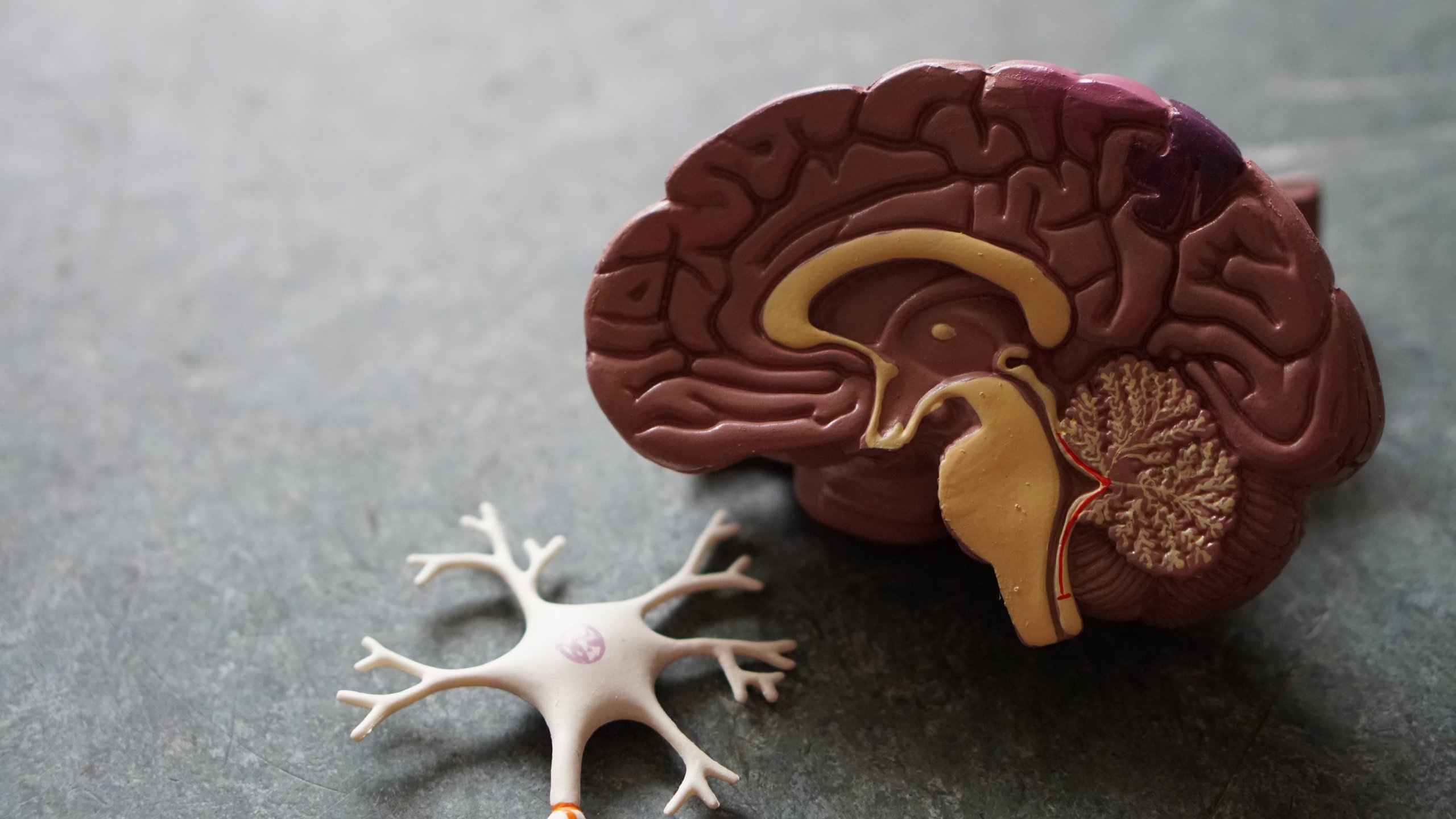
The journey towards inclusive neuropsychology and expanding the horizons of cognitive testing means embracing cultural and linguistic diversity. As the world grapples with the challenges of an aging population, the dramatic increase in dementia cases, particularly in the Middle East and North Africa (MENA) region, has become a pressing issue. This surge is not just a matter of numbers: It’s a complex health puzzle where language plays a critical role, says Prof. Mohamed Seghier, Director of the Khalifa University Healthcare Engineering Innovation Center (HEIC). “Cognitive decline, a key indicator of dementia, is typically assessed through standardized neuropsychological tools,”…
Read more
The first MENA region team to reach the semi-finals has been awarded a grant for further development and progress to the next stage of the coveted international competition. A team of researchers from Khalifa University has been named a semi-finalist Discovery Award winner for the Longitude Prize on Dementia. The team’s iMAGIC smart glasses solution offers assistive features including facial recognition, reminders and alerts, zooming in and out to facilitate navigation, phone calls to loved ones, and vital-sign monitoring. The Khalifa University team is the only team from the MENA region to be selected to progress to…
Read more
Health challenges remain one of the long-standing issues in the Arab region but biomedical computing research is one way to tackle these challenges. By Dr. Ahsan H. Khandoker Read Arabic story here. A combination of factors is driving the growth in demand for healthcare in the Middle East, including aging populations, longer life expectancies, and sedentary lifestyles that lead to an increase in obesity, cancer, and diabetes. Thanks to recent advances in computing technology, biomedical computing has become one of the most influential research areas worldwide. There has been an explosion in the volume of biomedical data…
Read more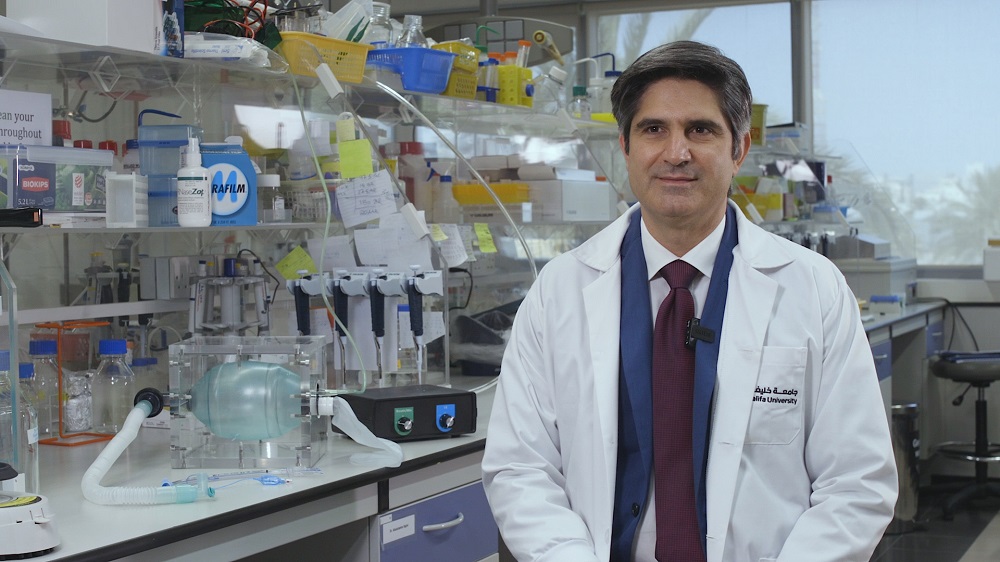
A multi-disciplinary team in the UAE has developed an affordable, simple, and easy-to-manufacture ventilator prototype. The prototype ventilators could serve as a stop-gap measure, giving doctors precious time until an advanced ventilator becomes available. Khalifa University · Khalifa University Responding to Covid-19 with Emergency Ventilators Researchers at Khalifa University’s Healthcare Engineering Innovation Group (HEIG) are stepping up to serve in the UAE’s project to develop emergency ventilators. The researchers have developed a working prototype and are now engineering the production plant to be able to produce the ventilators at scale to meet rising local and global demands. …
Read more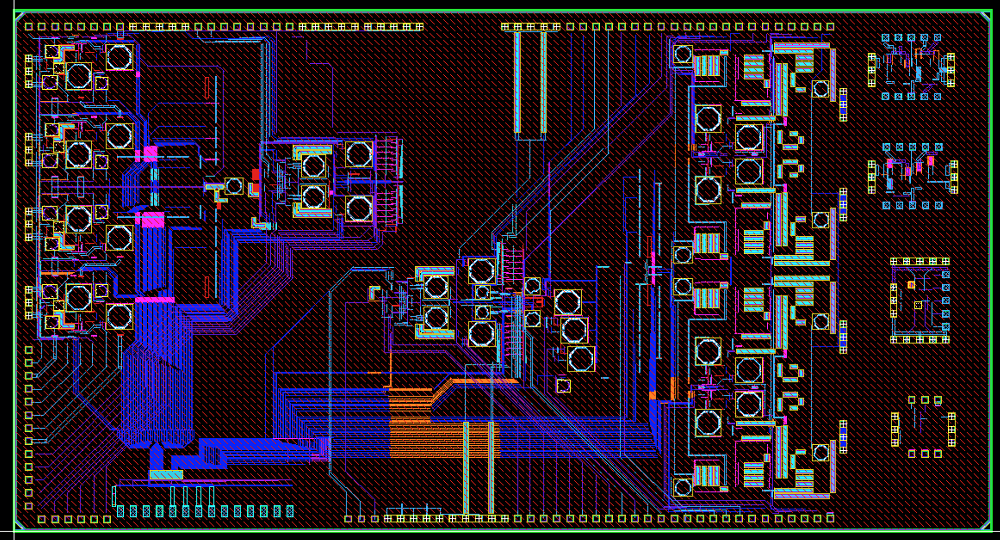
Photo caption: This block of 160GHZ Radar (LNA, PA, Mixer) design at 22nm technology and will be used for future Radar-based vital sign detector In these unprecedented times, healthcare innovations designed to manage and reduce the spread of infectious diseases like Covid-19 are paramount. Researchers at the Khalifa University System-on-Chip Lab (SoCL) recently published a paper on using radar to detect human vital signs without contact. While their initial motivation was focused on removing the need for wires and electrodes to manage patient health better, it has since evolved to find applications of this new technology to help limit the…
Read more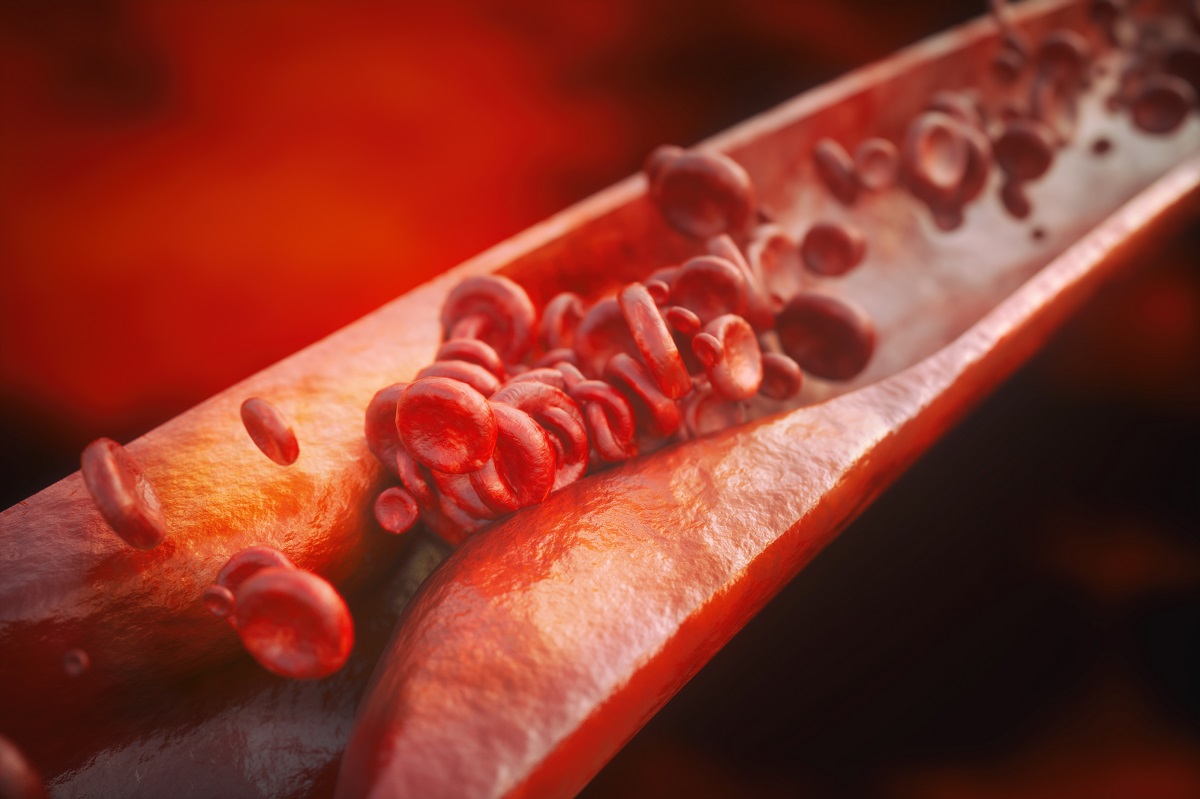
Research at Khalifa University’s Department of Biomedical Engineering, led by Assistant Professor Dr. Sungmun Lee, has developed a target-specific delivery system encapsulating antioxidants to ensure their successful delivery to cells damaged by atherosclerosis. Atherosclerosis is a chronic inflammatory disease in which the inside of an artery narrows due to the build-up of plaque. For unknown reasons, white blood cells—also known as leukocytes—begin to attack the endothelium of the artery, and the ensuing inflammation leads to the formation of the atheromatous plaques, which accumulate over several years. Inflammation is a natural defense mechanism induced by the body’s immune system to facilitate…
Read more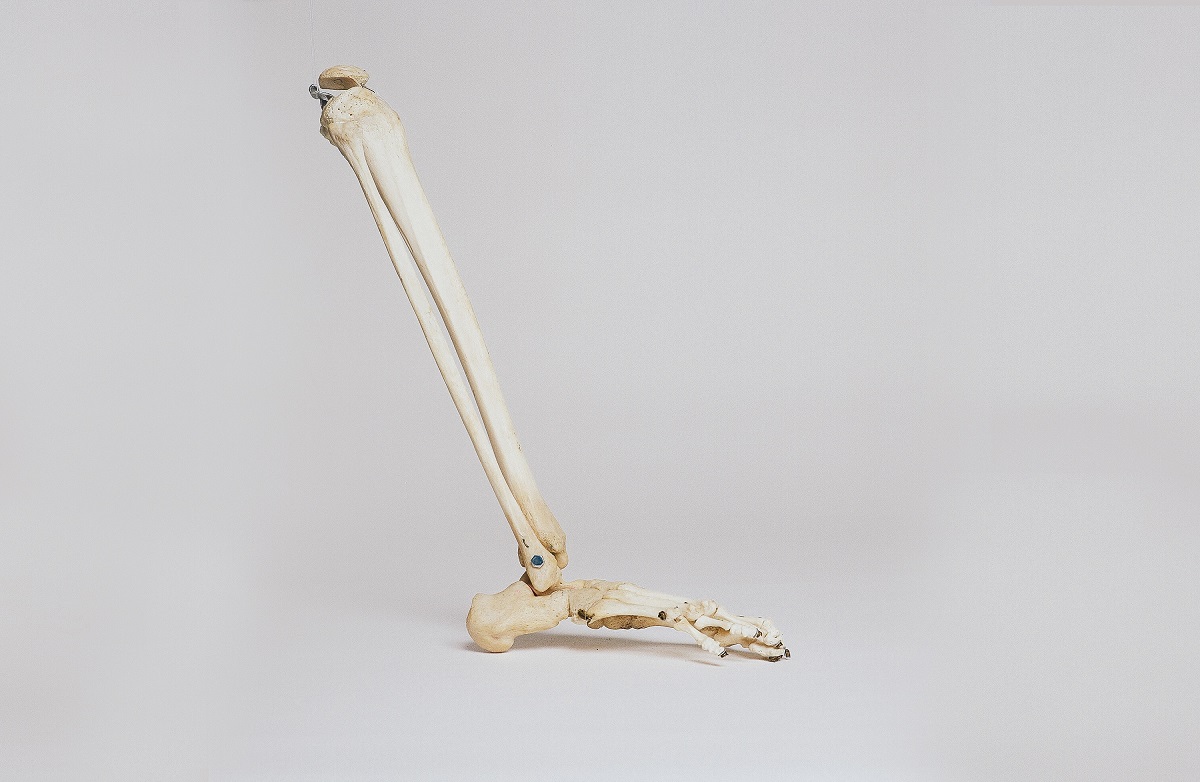
Dr. Kinda Khalaf, Associate Professor and Associate Chair, Biomedical Engineering, is leading a team of researchers at the Healthcare Engineering Innovation Group (HEIG) at Khalifa University to develop innovative methodologies and assistive technologies to assess and rehabilitate patients following a stroke. Dr. Khalaf is focusing on the quantification of disease induced movement impairment in stroke survivors using experimental and computational techniques, while Dr. Dongming Gan, Assistant Professor in the Department of Mechanical Engineering, is supervising a student design project aiming to develop a compliant ankle exoskeleton. The first step is development of a clinical assessment protocol using gait and other…
Read more
Dr. Kinda Khalaf, Associate Professor and Associate Chair, Biomedical Engineering, is leading a team of researchers at the Healthcare Engineering Innovation Group (HEIG) at Khalifa University to develop innovative methodologies and assistive technologies to assess and rehabilitate patients following a stroke. Dr. Khalaf is focusing on the quantification of disease induced movement impairment in stroke survivors using experimental and computational techniques, while Dr. Dongming Gan, Assistant Professor in the Department of Mechanical Engineering, is supervising a student design project aiming to develop a compliant ankle exoskeleton. The first step is development of a clinical assessment protocol using gait and other…
Read more
Dr. Georg Petroianu discusses issues of early diagnosis, longevity, and continuous monitoring in the following keynote address delivered at the Healthcare Engineering and Innovation Group's 1st International Workshop on 25 November 2019. I was asked to talk about the future of healthcare in the 21st century to open the 1st International Workshop at the Khalifa University Healthcare Engineering Innovation Group and was asked to try and answer the question: “Where are we going?” I decided to first try and come up with a brief history of medicine, and then figure out from there exactly where we are going. The long…
Read more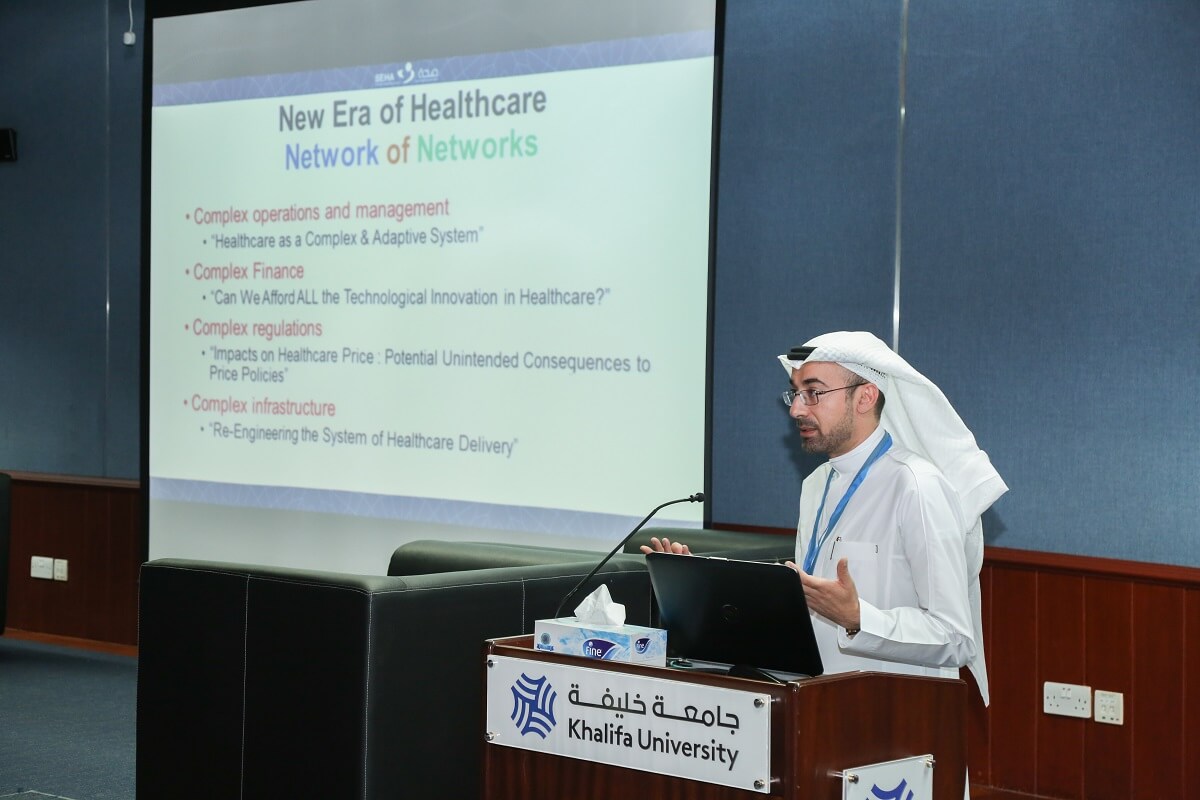
The Healthcare Engineering Innovation Group (HEIG) hosted its 1st International workshop from 25 - 26 November 2019. The HEIG seeks to develop novel methodologies, devices, and tools for the diagnosis, intervention, treatment, and rehabilitation of the wide spectrum of health challenges associated with cardiovascular diseases. The group also has the framework to tackle other relevant health challenges in the UAE. The HEIG workshop focused on the themes of vision on healthcare, innovation, and value creation. The workshop offered a unique opportunity for local and international researchers and healthcare professionals to address challenges related to healthcare innovation, with a particular focus…
Read more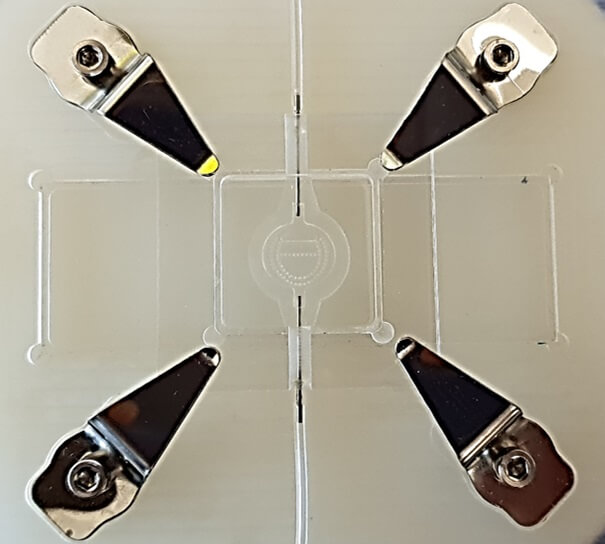
KU Researchers Develop Lymph Node-on-Chip Device on Which to Test New Drugs and Accelerate Development of Effective Pharmaceuticals Ever since life started, people have been in constant battle with disease. New drugs are introduced to combat pathogens and disease-causing agents, but getting regulatory approval is not easy; it is time consuming, costly and highly dependent on animal models. For a drug to be approved by the US Food and Drug Administration (FDA), it must pass the preclinical evaluation phase — involving in vitro testing as well as in vivo animal testing — and then the clinical evaluation phase which requires…
Read more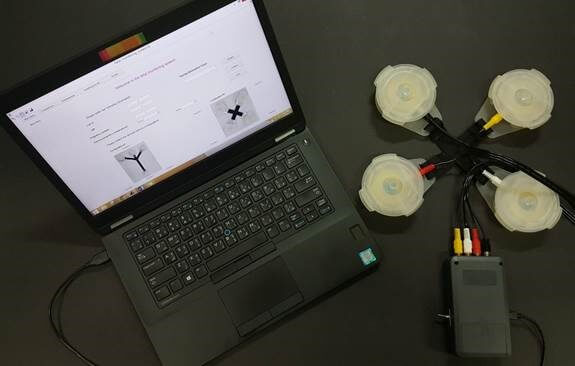
Team at Khalifa University Develops Twinkle Heart, a Fetal Heart Monitor for Expectant Parents Eager to Hear Their Unborn Child Cardiovascular disease is the leading cause of mortality and morbidity in the United Arab Emirates, but researchers in the Healthcare Engineering Innovation Group at Khalifa University are working on all aspects of heart health care to ensure citizens and residents at all stages of life are looked after. This includes the latest product from the successful sponsorship and establishment of a UAE-based biomedical company in cardiac monitoring from Dr. Ahsan Khandoker, Associate Professor of Biomedical Engineering at Khalifa University. The…
Read more